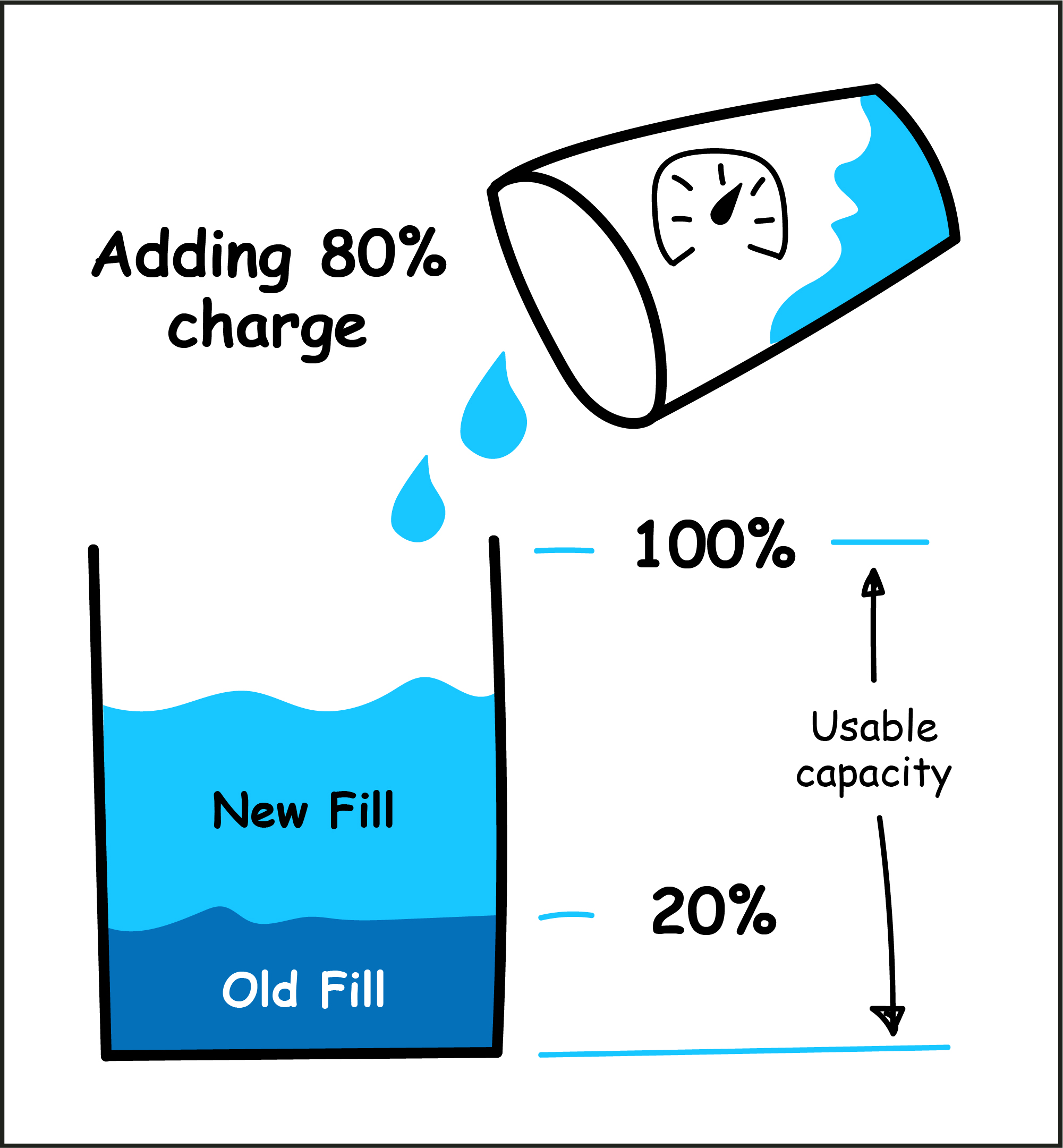Heading
A Quick Refresher: Energy
To fully explain what that number is telling us, we need to understand each part of it.
Watts vs. Kilowatts
What is a watt? It’s a unit of power. And power measures energy over time. So, if you’re carrying something heavy up a flight of stairs, energy is what it takes to carry it at any given moment, and power is what it takes to keep carrying it for 10 minutes.
What is a kilo? The prefix ‘kilo’ means one thousand, so a kilowatt is simply 1,000 watts.
Once you understand watts and kilowatts, the kilowatt-hour part is deceptively simple. Here’s a simplified real-world example:
- A 60-watt light bulb running for one hour consumes 60 watt-hours (0.06 kWh).
- Over 10 hours, that same bulb consumes 600 watt-hours (0.6 kWh).
By seeing how small usages add up, you can appreciate how electric vehicles measure and use energy.
Conclusion
Understanding kWh helps you estimate EV range, charging needs, and overall battery life.
Since power is the rate of energy per time, multiplying watts by time (an hour) gets you back to the raw energy measurement, which the EV world calls capacity.
Energy in Car Batteries
To sum it up, a 60 kWh battery can generate 60 kW sustained over one hour. If you only use 15 kW per hour, you get four hours of energy. If you use more power, say 120 kW, your battery will only last for a half hour. This is why an EV battery rated at a certain kWh has a fluctuating duration. The power needs of your car will determine its duration.
Higher kWh batteries tend to accommodate longer vehicle ranges but the two are not necessarily related. Efficient matters, too. In other words, you can have two cars with the same size battery, but that get different ranges due to how much energy the car needs to go.
Key Points on kWh and EV Range

Author: Liz Najman, mathematician and researcher serving as Director of Marketing Insights at Recurrent.

